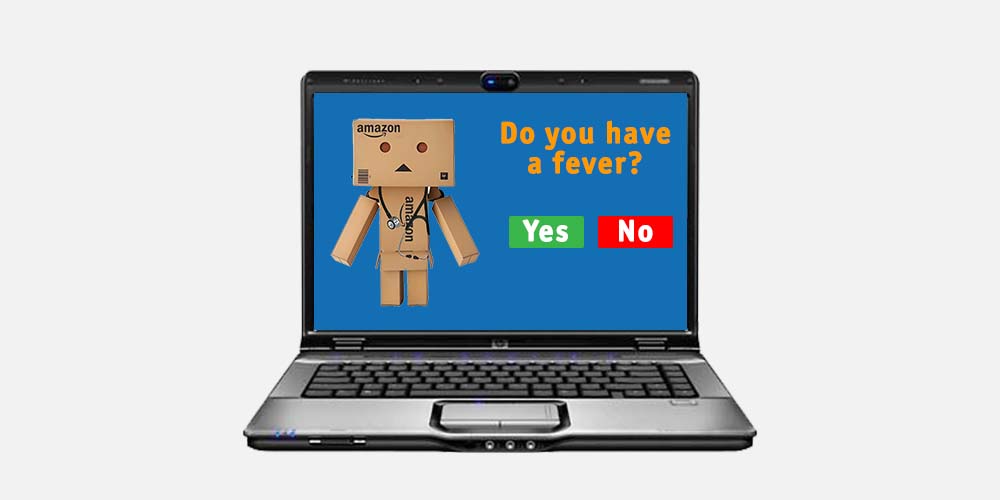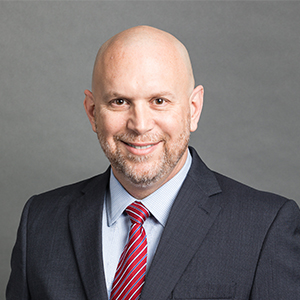
In 1994, a relatively unknown former investment banker decided that he had a better way to sell books than the typical brick and mortar stores. He named this company Cadabra and consulted with former executives in the publishing industry to provide consumers a new way to shop for books.
His lawyer told him that 'Cadabra' sounded too much like 'Cadaver,' so he then
tried out 'Relentless.' This time his friends advised him that this name was too
aggressive for a business. By now, most of you will know this is the story of
Jeff Bezos and the founding of Amazon. (If you type relentless.com into your
browser, guess where the page redirects.) Over the next 25 years, Jeff Bezos and
Amazon have rewritten business as we know it and has turned many industries on
their heads.
So what does Amazon have to
do with healthcare other than delivering Advil® Cold and Sinus to our front
doors?
In January 2018, Amazon made its first foray into
the healthcare marketplace by partnering with Berkshire Hathaway and J.P.
Morgan* to create
an employer healthcare initiative for the two company's employees. Then in early
summer, Bezos and Amazon acquired internet pharmacy start-up "PillPack**," thereby
firmly planting their feet into the $3.5 trillion healthcare sector. However,
that was just the beginning. Bezos and team have also started to explore
home-based medical diagnostic testing***, they have filed a patent for it's Alexa voice
assistant to listen for the signs of a cough or cold**** amongst its
users, also they have announced a new product designed to mine patient medical
records*****, and
they even started an Amazon employee health clinic******. Lastly,
and important because it is their first step as a manufacturer in the healthcare
industry, in October of 2018, Amazon with the medical device manufacturer,
Arcadia Group, started to manufacture blood pressure monitors and blood glucose
monitors under the brand name, "Choice.*******"
Healthcare
Prime???
Amazon's vision of healthcare for the future will
include virtual urgent care services. Healthcare providers such as Blue Cross
Blue Shield already offer their subscribers a virtual service via their app.
Patients can virtually visit a doctor, tell them their symptoms, and have the
doctor make a diagnosis and submit a prescription to your choice of pharmacies
or receive a recommendation to follow up at a physical doctor's office or urgent
care. Amazon would follow this model but would insert the ability to ship the
patient an expedited home health test which would transmit the results to
Amazon-employed physicians to make a more complete diagnosis. The delivery of
the appropriate prescription, based on the results of the test, would complete
the visit. With Amazon's Same-Day Delivery service, this entire process would
take a few hours. The same or less time a patient would take to visit the
physician's office, wait in the waiting room, visit the pharmacy, wait for the
prescription and then return home.
What's
next on the horizon?
Bezos has not become the richest man
in the world by just sticking his toe into an existing industry. He has often
used Amazon to rewrite the infrastructure of their target industries. With
healthcare, the internet giant has already begun rewriting the rules for
prescription drugs. PillPack has already agreed to continue to support the
Express Script customer base as the mail-order pharmacy for the Cigna Insurance
network. However, this is not an exclusive deal; PillPack will also be able to
fill prescriptions for cash-pay customers and other insurance company consumers.
Additionally, PillPack offers prescription management software which is
strikingly similar to Amazon's fulfillment services, but with HIPAA compliance.
The combination of all these services gives Amazon an unprecedented amount of
patient data.
Next on Amazon's radar would logically be claims
management. The backbone to Amazon's previous successes has been the development
of robust back-end systems that streamline processes, thereby reducing the
amount of time it takes to get paid. With the now complex system of insurance
payments, authorization processes and medical billing, Amazon could step in and
reorganize the process as a white-label product similar to what they have done
for Berkshire Hathaway and J.P. Morgan. These two self-insured companies have
relied on Amazon to process their employees' medical claims and pay the
healthcare providers promptly. The benefit to the employers, the insurance
companies and the patients is a more transparent breakdown of cost, coverages,
and value.
Should the Amazon virtual urgent care be successful, it would
only be a matter of time before Amazon begins to open physical urgent care
facilities. This seemingly illogical step would follow in the path of Amazon Go,
Amazon 4-Star, Amazon Pop-Up, and Amazon Books. Once they have upset the
industry norms, Amazon has opened physical locations, usually with a twist to
conventional standards. For example, Amazon Go offers the convenience of
visiting a grocery store without cashiers; while Amazon 4-Star offers only books
and products with a 4-Star rating on their website. The question for Amazon's
healthcare facilities will not be if they open any, but should be what part of
the 'doctor's visit' will they automate or streamline?
So how will Amazon effect the radiology industry?
As of today, Amazon has not announced any ventures into
radiology. However, with virtual healthcare services, an internet pharmacy, a
product in the home of consumers that can listen for signs of illness, a
partnership to manufacture medical devices and over $1 trillion in equity it is
a safe bet that Amazon will soon step into the radiology field. How far along
will it be until they announce the first Amazon mobile phone app that can take
an x-ray and transmit it directly to an Amazon Artificial Intelligence program
that can make a diagnosis?
The satire website the Onion published a
tongue-in-cheek article about Amazon stocking 20,000 physicians******** in its
warehouses in January 2018. Will we look back in January 2023 and realize that
satire has become a reality?
- * Abelson, Reed, and Tiffany Hsu. “Amazon, Berkshire Hathaway and JPMorgan Name C.E.O. for Health Initiative.” The New York Times, The New York Times, 20 June 2018, www.nytimes.com/2018/06/20/health/amazon-berkshire-hathaway-jpmorgan-atul-gawande.html.
- ** LaVito, Angelica, and Lauren Hirsch. “Amazon Shakes up Drugstore Business with Deal to Buy Online Pharmacy PillPack.” CNBC, CNBC, 28 June 2018, www.cnbc.com/2018/06/28/amazon-to-acquire-online-pharmacy-pillpack.html.
- *** Farr, Christina, and Eugene Kim. “Amazon Has Explored Getting into Consumer Health Diagnostics - Testing for Disease at Home.” CNBC, CNBC, 14 Dec. 2018, www.cnbc.com/2018/12/14/amazon-explored-medical-diagnostics-was-in-talks-to-buy-confer-health.html.
- **** Kircher, Malone. “I Don't Want My Echo Dot to Be Able to Tell When I'm Sick.” Daily Intelligencer, Intelligencer, 15 Oct. 2018, nymag.com/intelligencer/2018/10/amazon-patent-would-allow-echo-to-tell-if-a-user-has-a-cold.html.
- ***** Locklear, Mallory. “Amazon's next Healthcare Move Is Software That Can Mine Medical Records.” Engadget, 27 Nov. 2018, www.engadget.com/2018/11/27/amazon-software-mine-medical-records/.
- ****** Scipioni, Jade. “Amazon Plans to Open Its Own Health Clinics for Employees: Report.” Fox Business, Fox Business, 9 Aug. 2018, www.foxbusiness.com/features/amazon-plans-to-open-its-own-health-clinics-for-employees-report.
- ******* “Press Release - Oct 2018.” Choice, www.choiceplus.health/press-release.
- ******** The Onion. “Amazon Warehouses Stocked With 20,000 Doctors In Preparation For Healthcare Launch.” The Onion, The Onion, 9 Mar. 2018, www.theonion.com/amazon-warehouses-stocked-with-20-000-doctors-in-prepar-1822604236.









 ©
- CMS Imaging, Inc. All Rights
Reserved
©
- CMS Imaging, Inc. All Rights
Reserved

Comments
Leave a Comment